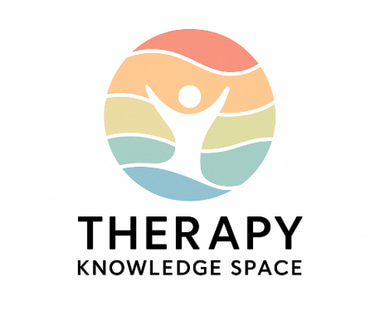When Care Goes Beyond the Couch: Why Therapy Homework Improves Outcomes and Deepens Connection
Therapy is more than conversation—it’s transformation. This blog explores how assigning therapy homework can dramatically improve client outcomes, deepen the therapeutic alliance, and demonstrate meaningful care between sessions. Backed by research and filled with real-world tools, this is your guide to using worksheets and assignments that truly make a difference in mental health treatment.
5/8/20244 min read


When Care Goes Beyond the Couch: Why Therapy Homework Improves Outcomes and Deepens Connection
In mental health care, what happens between sessions can be just as powerful—if not more—than what happens during them. The most effective clinicians understand that therapy is not a passive experience. It’s active. It’s participatory. And in many cases, the key to long-term healing lies in what clients are asked to do after they leave the room.
That’s why therapy homework matters.
Whether it’s a thought journal, a CBT worksheet for anxiety, or a grounding exercise for PTSD, giving clients structured, meaningful assignments has been shown to improve mental health outcomes, build clinical trust, and strengthen the therapeutic alliance.
This isn’t just opinion. It’s evidence-based. And in today’s fast-moving, burnout-prone clinical world, it might be one of the most overlooked tools we have.
The Research Is Clear: Therapy Homework Works
Let’s start with what the data says.
A major meta-analysis published in Clinical Psychology Review (Kazantzis et al., 2010) examined dozens of psychotherapy studies and found a consistent pattern: clients who completed out-of-session homework achieved significantly better results than those who didn’t.
Key findings included:
Stronger symptom reduction in depression, anxiety, and trauma disorders
Improved retention in therapy programs
Faster progress toward treatment goals
Another study in the Journal of Consulting and Clinical Psychology found that the quality of a client's homework completion was one of the strongest predictors of therapeutic success—sometimes even more than the number of sessions attended.
And for clinicians who use cognitive behavioral therapy (CBT), the evidence is even stronger. A 2020 study in Cognitive Therapy and Research found that incorporating weekly CBT worksheets into treatment led to a 35% faster reduction in anxiety symptoms compared to sessions without structured assignments.
The takeaway? Therapy homework isn’t supplemental. It’s foundational.
Why Homework Assignments Strengthen the Therapeutic Alliance
There’s also a deeper, more human layer to this.
When a therapist or nurse practitioner takes the time to prepare a coping skills worksheet, a mood tracker, or a journaling assignment tailored to a client’s needs, it sends a powerful message:
“I see you. I care about your healing, even when we’re not in the same room.”
This kind of gesture builds trust. It affirms that therapy isn’t just about what happens in a chair—it's about helping someone create a better life outside of it. And clients feel that. In fact, research published in Psychotherapy Research found that clients who received consistent homework from their therapists rated the relationship as more collaborative, invested, and supportive than those who didn’t.
In short: giving assignments isn’t just clinically effective. It’s emotionally intelligent.
The Most Effective Types of Homework for Mental Health
Here’s what works well across diagnoses and treatment models:
1. CBT Worksheets for Anxiety
These include thought logs, worry trees, and exposure planners. Clients learn to identify unhelpful thoughts and actively challenge them using real-life evidence.
2. Homework Assignments for Depression
Behavioral activation charts, gratitude lists, and “small win” trackers help counter the inertia and hopelessness common in depressive episodes. These assignments keep momentum going even when motivation dips.
3. Coping Skills Worksheets for Emotional Regulation
For clients navigating trauma, borderline personality traits, or mood instability, handouts rooted in dialectical behavior therapy (DBT) offer real-time tools—like distress tolerance logs or emotion regulation wheels.
4. PTSD and Trauma Handouts
Tools like grounding techniques, symptom monitoring, and trauma narrative templates help clients safely integrate their experiences while increasing emotional stability between sessions.
5. Mental Health Homework for Nurse Practitioner Settings
NPs working in integrated care or primary care environments often have less time per patient—but that doesn’t mean their impact is less. Offering printable therapy handouts, stress logs, or emotional check-ins can extend the reach of care and reinforce mental health support between appointments.
How to Assign Homework in a Way That Sticks
Giving someone a handout is one thing. Making sure it gets used is another. Here’s what works:
Make it collaborative. Ask your client what feels manageable. Let them choose from 2–3 options, or co-create an assignment together.
Be specific. Instead of “Try journaling,” say, “Write for 10 minutes about one time you felt overwhelmed this week, and how you responded.”
Follow up. Always check in. Celebrate the effort—not just the results.
Keep it brief. Homework should be clear, simple, and achievable. If it takes more than 15 minutes, it’s probably too much.
Clients are more likely to complete assignments when they know you’ll check in—and when they sense that it’s directly connected to their healing.
Homework as a Signal of Clinical Excellence
Here’s something most providers never say out loud: clients notice when we go the extra mile.
They know when you’ve printed out a worksheet with intention. When you’ve written a journaling prompt that speaks directly to their experience. When you’ve remembered the exact grounding technique that helped them last time and offered it again—on paper.
That’s not just good therapy. That’s excellent care.
In a system where clients often feel unseen or rushed, a simple homework assignment can be a radical act of attention. It tells the client, “I believe in your capacity to heal, even between sessions.”
If you're a therapist, social worker, or nurse practitioner, don’t underestimate the power of a well-placed homework assignment. Whether it’s a CBT worksheet for anxiety, a mood tracking chart for depression, or a coping skills handout for emotional regulation, these tools don’t just reinforce the work—they are the work.
When we give our clients something to hold onto outside the session, we’re offering more than paper. We’re offering structure. Safety. Support. A reminder that they are not alone—and that healing doesn’t wait for the next appointment.
Need ready-to-use therapy worksheets for your practice?
Explore our growing library of professional, printable tools—evidence-based, beautifully designed, and created by clinicians who understand what healing really takes.
